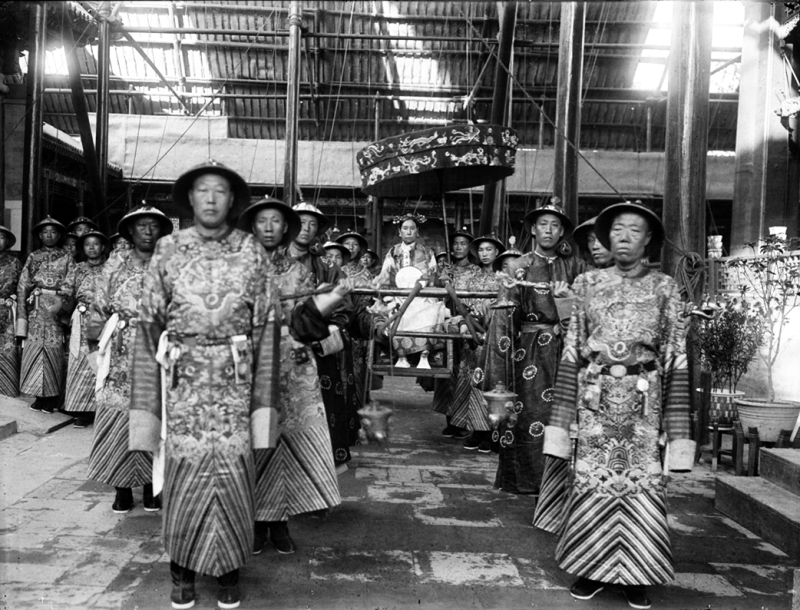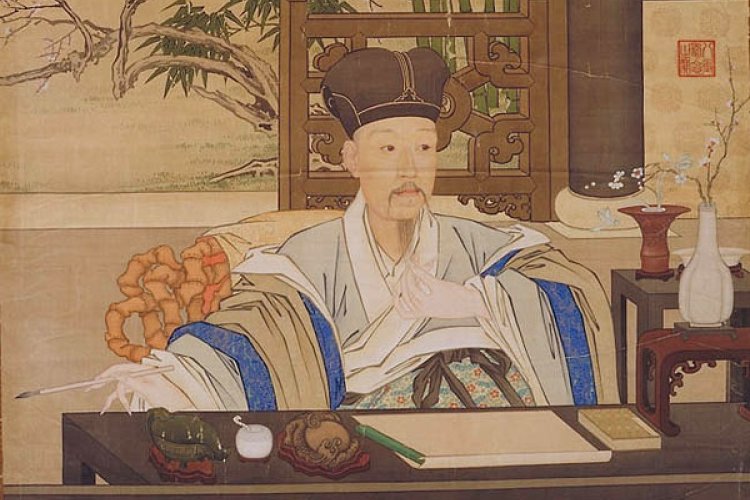Eunuchs in Beijing: The Bad and the Misunderstood
Imperial eunuchs have a lousy reputation in Chinese history and pop culture. Part of the problem is archival. We have very few sources produced by eunuchs about their own lives. When eunuchs did enter the official records, it was usually because they ran afoul of the emperor or officials at court. Simply put: The only time we hear about eunuchs is when they’ve screwed up (or somebody wants to frame them). No wonder eunuchs have a PR problem. That said, there were some eunuchs who definitely earned their notoriety. Here are three of the most famous of the bad bunch and some of the places in Beijing associated with them.
Wang Zhen (d. 1449) served the Ming imperial prince Zhu Qizhen (1427-1464), who became emperor at the tender age of eight. Eunuchs often enjoyed a great deal of influence on young monarchs. It was eunuchs, after all, who raised the imperial hatchlings and took care of them, bathed them, got them dressed, and were sometimes — even more than their parents — the most stable and present figures in a young prince’s life.
As leading figures at the court died or retired, Wang Zhen used his influence to gain more control over Zhu Qizhen, even convincing the immature emperor to personally lead a large army against Esen Khan and the Mongol armies in 1449. The battle went poorly. How poorly? The Ming armies were overrun by the Mongols, Wang Zhen was killed (probably by Ming troops), and in the hasty retreat, the generals of the Ming Dynasty left the emperor behind on the battlefield to be picked up by the Mongolians. Esen Khan tried to ransom the emperor back to the Ming court, who responded by — how’s this for the self-esteem? — declining Esen Khan’s offer and simply putting Zhu Qizhen’s younger brother on the throne.

(Esen Khan eventually sent Zhu Qizhen back to Beijing, but his brother wasn’t about to give up his new throne. He imprisoned Zhu Qizhen for seven years until Zhu Qizhen was able to organize a coup and return to the throne, the only Ming ruler to have two non-consecutive reigns as emperor. Families, am I right?)
During his time of influence and power, Wang Zhen consecrated a temple in his honor in the eastern hutongs of Beijing. While no longer associated with the disgraced and deceased eunuch, the Zhihua Temple is (Covid-willing) open to the public and remains one of the best-preserved/restored examples of Ming temple architecture in the city. The temple also has a small exhibit and museum about Wang Zhen, Zhu Qizhen, and the crisis of 1449.

Ming politics was a tough gig. Factions, in-laws, scheming officials, and conniving outsiders played a bloody game of power and intrigue. Few played the game as well, at least for a time, as the eunuch Wei Zhongxian (1568-1627), one of the most notorious figures in Chinese history.
Wei entered the Forbidden City as a young man, having been castrated before being presented to the court. He was close with the mother of the future Tianqi Emperor [r. 1620-1627], who was a troubled young man. There were rumors of mental instability, and the Tianqi Emperor may have been learning disabled. He was, at the very least, a weak ruler, and Wei Zhongxian moved to fill the void, attacking political enemies, especially court officials associated with the Donglin faction, and consolidating his power. The death of the Tianqi Emperor marked the end of the eunuch Wei Zhongxian’s reign of terror, and Wei was forced out of his position, committing suicide rather than facing his crimes.
One of the tools Wei used to further his schemes was the 锦衣卫 Jǐnyīwèi, a department of the Ming court that acted as a much-feared secret police and intelligence-gathering service. Wei served as head of the “Eastern Office” of the Jinyiwei in Beijing, whose headquarters were located on 东厂胡同 Dongchang Hutong, named after the former secret police headquarters located south of the National Museum of Art in the Dongcheng District. 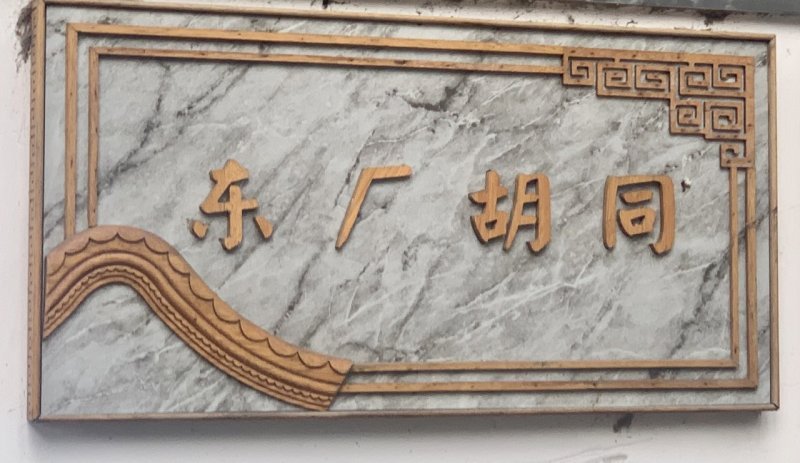
Of all the eunuchs to serve the Qing Dynasty, none has enjoyed greater fame (or been portrayed more times in TV and film) than Li Lianying (1848-1911), who served as the right-hand man of the Empress Dowager Cixi in the last decades of her life.
That's because he was one of the most feared members of the court. In the memoir of the court lady Yu Deling (1881-1944), she was warned, “my eunuch told me in confidence that Li was responsible for the death of many innocent people, mostly eunuchs. He had unlimited power at the Court, and it was very easy for him to get anybody put away who offended him or to whom, for some reason or another, he took a dislike.”
The American artist Katharine Carl, who lived for a time at the Summer Palace while Carl was painting a famous portrait of the Empress Dowager, described Li as “tall and thin. He has a Roman nose, a massive lean jaw, a protruding lower lip, and very shrewd eyes, full of intelligence, that shine out of sunken orbits. His face is much wrinkled and his skin like old parchment.”

It was almost certainly Li Lianying who oversaw the murder of the Guangxu Emperor in 1908, just hours before the Empress Dowager herself died, giving Cixi time to appoint a new monarch: The Last Emperor, Puyi. Unlike Wang Zhen and Wei Zhongxian, Li seemed to have escaped retribution and died of natural causes (although legends suggest a grisly end) in 1911.
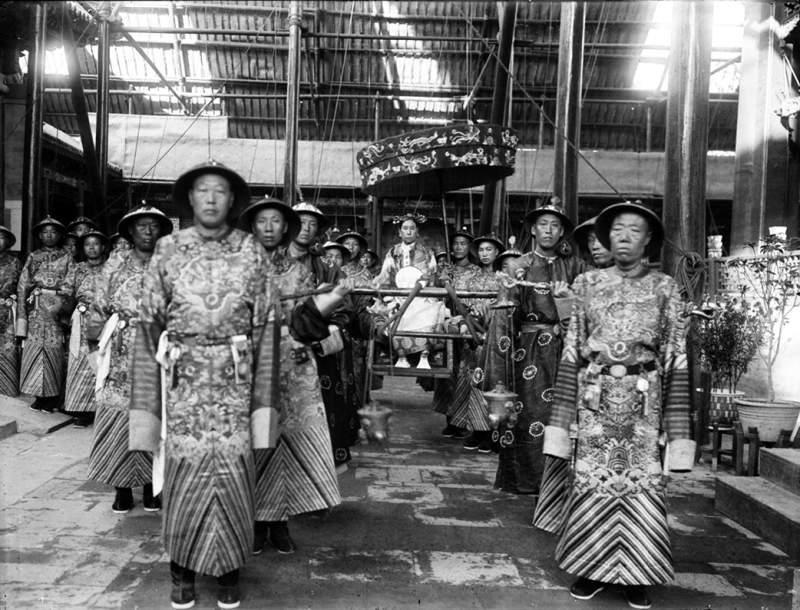
Li wasn't the only eunuch to earn the favor of Empress Dowager Cixi, playing Dwight to Li Lianying's Michael Scott, Assistant-to-the-Regional-Chief-Eunuch Cui Yugui (1860-1926) was responsible for one of the Forbidden City's grisliest episodes when Cui had the Guangxu Emperor's favorite consort, The Pearl Concubine, stuffed down a palace well in 1900.
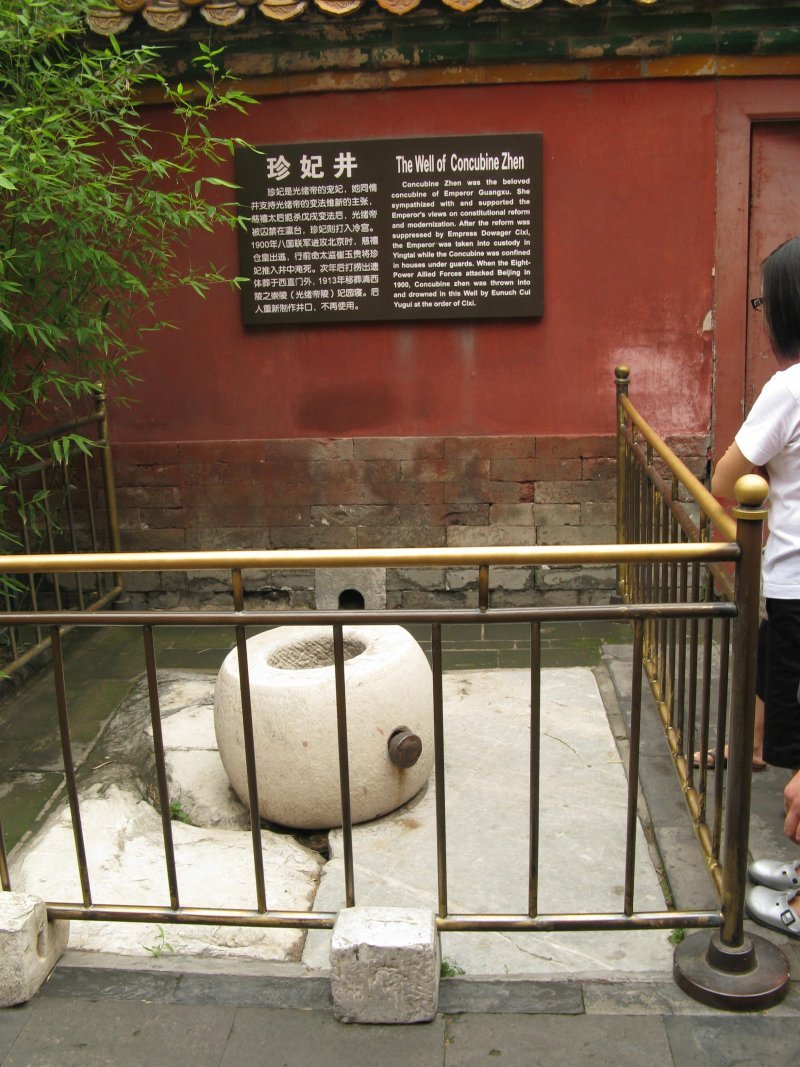
While these are some famously bad eunuchs, it’s worth noting that, reputation aside, most eunuchs were just ordinary folks trying to do a difficult job. They were often treated poorly and many suffered abuse at the hands (and other body parts) of their imperial masters.
Perhaps one reason there are so many stories of eunuchs misbehaving is that there was a lot of resistance to the treatment they received. There’s also the issue of bias. Historians today are more sensitive to issues of gender and identity. Non-binary individuals in history have often been targets of prejudice and discrimination. While most eunuchs presented as male (he/him), not everyone in Chinese society felt the same. The gender-fluid identity of eunuchs, and their servile position, meant that after the end of the dynastic era, eunuchs continued to face discrimination and difficulty adjusting to life outside the palace walls.
Two good books about the lives of eunuchs in the Qing Dynasty and later are Melissa Dale, Inside the World of the Eunuch. (HKUP, January 2019) and Jia Yinghua, The Last Eunuch of China: The Life of Sun Yaoting, trans. Sun Haichen. (China Intercontinental Press, March 2009).
About the Author
Jeremiah Jenne earned his Ph.D. in Chinese history from the University of California, Davis, and taught Late Imperial and Modern China for over 15 years. He has lived in Beijing for nearly two decades and is the proprietor of Beijing by Foot, organizing history education programs and walking tours of the city, including deeper dives into the history and sites described here.
READ: Weekend Walk: Take a Stroll Through History Around Beijing's Lakes District
Images: Jeremiah Jenne, Wikicommons

